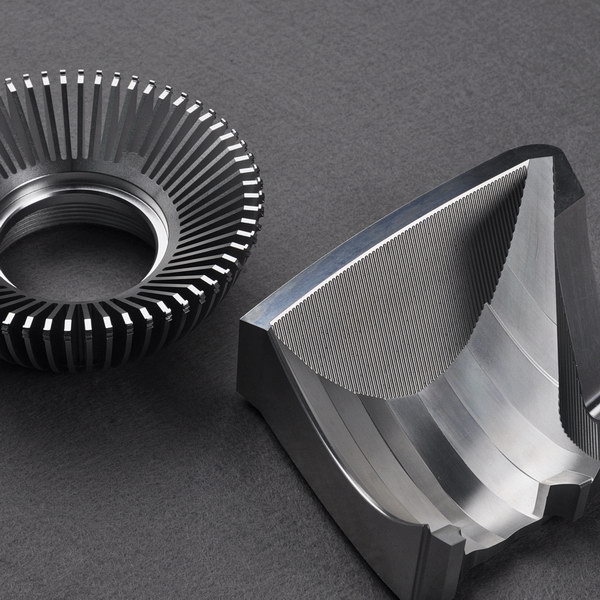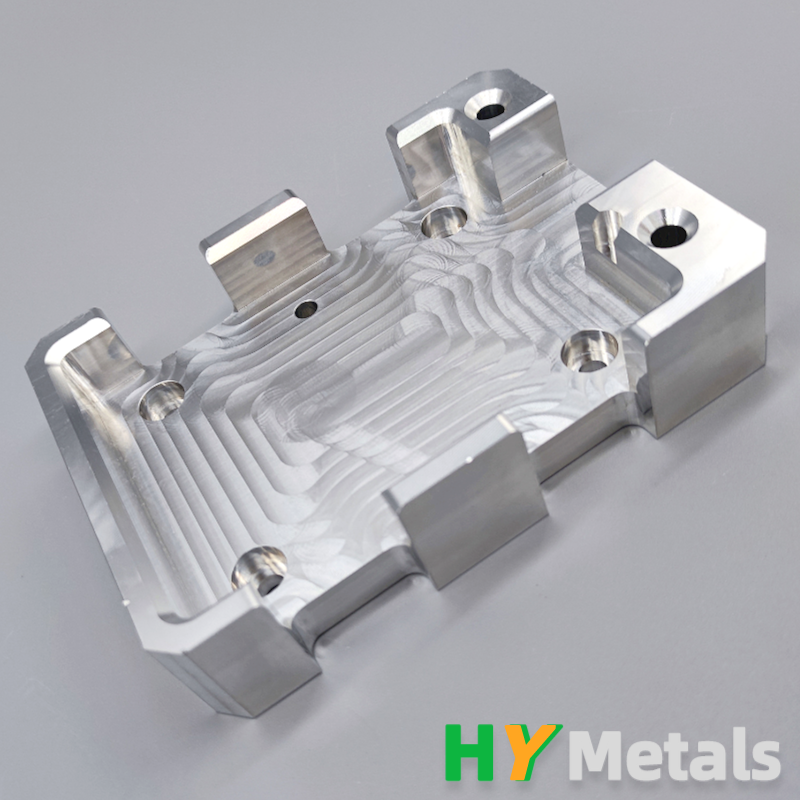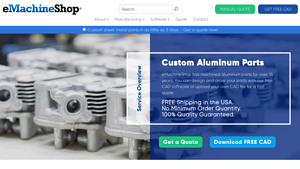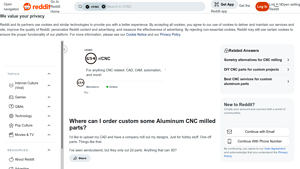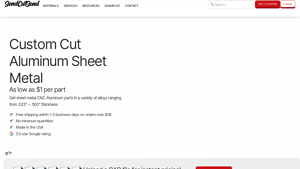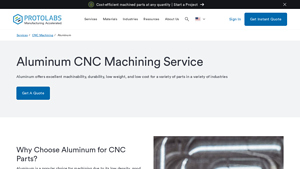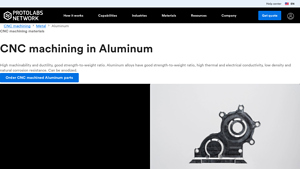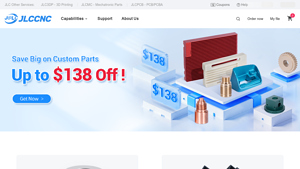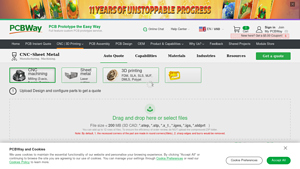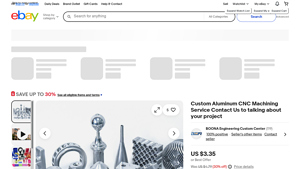Introduction: Navigating the Global Market for custom cnc aluminum
Navigating the global market for custom CNC aluminum presents a complex challenge for B2B buyers, particularly those sourcing precision-engineered components across diverse regions such as Africa, South America, the Middle East, and Europe. The lightweight and versatile nature of aluminum, coupled with its exceptional strength-to-weight ratio, makes it an ideal choice for industries ranging from aerospace to automotive. However, selecting the right aluminum alloy and machining process can be daunting, especially when factoring in regional material availability, supplier reliability, and cost-effectiveness.
This comprehensive guide serves as a vital resource for international B2B buyers, addressing key aspects such as types of aluminum alloys, their applications, and essential supplier vetting criteria. Additionally, it delves into cost considerations and potential savings through design optimizations, ensuring that purchasing decisions are not only informed but strategically advantageous. By empowering buyers with actionable insights and detailed information, this guide aims to streamline the sourcing process for custom CNC aluminum components, ultimately facilitating successful partnerships and enhancing operational efficiency.
As you navigate through this guide, you will gain a deeper understanding of the nuances involved in sourcing custom CNC aluminum, allowing you to make confident decisions that align with your business objectives. Whether you are looking to enhance product performance, reduce costs, or ensure compliance with international standards, this resource is tailored to meet the needs of global buyers in an increasingly competitive marketplace.
Understanding custom cnc aluminum Types and Variations
| Type Name | Key Distinguishing Features | Primary B2B Applications | Brief Pros & Cons for Buyers |
|---|---|---|---|
| Aluminum 6061 | Excellent machinability, good weldability, versatile | Automotive, aerospace, construction | Pros: Cost-effective, widely available. Cons: Moderate strength compared to other alloys. |
| Aluminum 2024 | High strength-to-weight ratio, poor weldability | Aircraft structures, military applications | Pros: Excellent fatigue resistance. Cons: Requires surface treatment for corrosion resistance. |
| Aluminum 5052 | High corrosion resistance, good formability | Marine applications, fuel tanks | Pros: Easy to machine and form. Cons: Not heat-treatable, limiting its strength enhancement. |
| Aluminum 7075 | High strength and fatigue resistance | Aerospace, high-stress applications | Pros: Superior strength-to-weight ratio. Cons: Higher cost and limited weldability. |
| Aluminum 6063 | Good extrudability, moderate strength | Architectural applications, window frames | Pros: Excellent for complex shapes. Cons: Lower strength than other alloys, especially near welds. |
What are the characteristics of Aluminum 6061 and its B2B relevance?
Aluminum 6061 is a versatile alloy known for its excellent machinability and good weldability. It is commonly used across various industries, including automotive, aerospace, and construction, due to its balanced mechanical properties and relatively low cost. B2B buyers appreciate its availability and adaptability for a wide range of applications, although they should consider that its strength is moderate compared to other specialized alloys.
Why is Aluminum 2024 favored in aerospace and military applications?
Aluminum 2024 is recognized for its high strength-to-weight ratio, making it ideal for applications requiring durability without excessive weight, such as in aircraft structures and military vehicles. However, its poor weldability and susceptibility to corrosion mean that additional surface treatments are necessary in harsh environments. B2B buyers should weigh these factors when sourcing materials for critical applications.
How does Aluminum 5052 stand out in marine applications?
Aluminum 5052 is known for its exceptional corrosion resistance, particularly in marine environments, which makes it a popular choice for fuel tanks and marine equipment. Its good formability allows for easy machining and shaping, which is essential for custom parts. Buyers should note that while 5052 is easy to work with, it cannot be heat-treated, which may limit its application in high-stress environments.
What are the benefits and drawbacks of using Aluminum 7075?
Aluminum 7075 is one of the strongest aluminum alloys available, offering excellent fatigue resistance, making it suitable for aerospace components and high-stress applications. However, its higher cost and limited weldability can be a drawback for some projects. B2B buyers must consider whether the strength advantages justify the investment, especially for products requiring robust performance.
In what situations is Aluminum 6063 the best choice?
Aluminum 6063 is particularly advantageous for architectural applications due to its excellent extrudability and ability to be formed into complex shapes. While it offers moderate strength, its weldability is beneficial for structures like window frames and railings. However, buyers should be cautious of the reduced strength near welds and consider the overall design and application requirements when selecting this alloy.
Key Industrial Applications of custom cnc aluminum
| Industry/Sector | Specific Application of custom cnc aluminum | Value/Benefit for the Business | Key Sourcing Considerations for this Application |
|---|---|---|---|
| Aerospace | Aircraft components (fittings, frames) | Lightweight yet strong materials enhance fuel efficiency and safety. | Ensure compliance with international aerospace standards and certifications. |
| Automotive | Engine parts, chassis components | Improved performance and reduced weight lead to enhanced fuel efficiency. | Focus on precision machining to meet tight tolerances and specifications. |
| Medical Devices | Surgical instruments, casings for medical devices | High corrosion resistance and biocompatibility ensure reliability in sterile environments. | Verify quality assurance processes and certifications for medical-grade materials. |
| Electronics | Enclosures for electronic devices, heat sinks | Effective heat dissipation and lightweight design improve device performance. | Consider thermal conductivity and surface finish options for optimal performance. |
| Construction & Architecture | Structural components, window frames | Customizable designs and durability contribute to innovative architectural solutions. | Assess the ability to produce complex shapes and finishes that meet design specifications. |
How is Custom CNC Aluminum Used in Aerospace Applications?
In the aerospace sector, custom CNC aluminum is critical for manufacturing lightweight components such as aircraft fittings and frames. These parts must endure rigorous stress while maintaining a low weight to enhance fuel efficiency and safety. International buyers should prioritize suppliers that comply with stringent aerospace standards, ensuring high-quality materials and precise machining capabilities. The ability to provide certified alloys that resist fatigue and corrosion is essential in this industry.
What Role Does Custom CNC Aluminum Play in Automotive Manufacturing?
The automotive industry relies on custom CNC aluminum for producing engine parts and chassis components. These applications benefit from aluminum’s high strength-to-weight ratio, leading to improved performance and fuel efficiency. B2B buyers in this sector need to ensure that their suppliers can meet tight tolerances and specific automotive standards. Additionally, understanding the alloy properties and machining processes can significantly impact production timelines and costs.
How is Custom CNC Aluminum Utilized in Medical Device Manufacturing?
Custom CNC aluminum is extensively used in the medical field, particularly for manufacturing surgical instruments and casings for medical devices. The material’s excellent corrosion resistance and biocompatibility are crucial for devices that operate in sterile environments. Buyers from international markets should focus on suppliers with robust quality assurance processes and relevant certifications. Ensuring that the aluminum meets medical-grade specifications is vital for safety and effectiveness.
Why is Custom CNC Aluminum Important for Electronics?
In the electronics sector, custom CNC aluminum finds applications in enclosures for electronic devices and heat sinks. The lightweight nature of aluminum, combined with its effective heat dissipation properties, enhances overall device performance. International buyers should consider the thermal conductivity and surface finish options available, as these factors can significantly affect the functionality and longevity of the electronic components. Collaborating with suppliers who understand the specific needs of electronics can yield better results.
How Does Custom CNC Aluminum Enhance Construction and Architecture?
Custom CNC aluminum plays a vital role in construction and architecture by providing structural components and window frames that are both durable and customizable. The versatility of aluminum allows for innovative designs that can withstand environmental factors while maintaining aesthetic appeal. Buyers in this sector should evaluate suppliers based on their ability to produce complex shapes and finishes that meet specific architectural requirements. Understanding local regulations and design standards is also essential for successful sourcing.
3 Common User Pain Points for ‘custom cnc aluminum’ & Their Solutions
Scenario 1: Challenges in Sourcing the Right Aluminum Alloy
The Problem: B2B buyers often struggle with selecting the appropriate aluminum alloy for their specific applications. With various aluminum alloys available, such as 6061, 5052, and 7075, each possessing unique properties and characteristics, the wrong choice can lead to issues like structural failures, excessive costs, or performance inefficiencies. For example, an automotive manufacturer may inadvertently choose a less corrosion-resistant alloy for a component exposed to harsh environmental conditions, resulting in premature failure and costly recalls.
The Solution: To overcome this challenge, buyers should invest time in understanding the properties and best applications of different aluminum alloys. Engage in discussions with suppliers who can provide technical data and recommendations based on the specific application requirements. Utilizing tools such as material selection charts can streamline this process. Additionally, conducting a pilot run with a small batch can help assess the performance of the selected alloy before full-scale production. This proactive approach ensures that the right alloy is chosen, significantly reducing the risk of costly mistakes.
Scenario 2: Quality Control and Assurance in Custom CNC Machining
The Problem: Ensuring consistent quality in custom CNC machined aluminum parts can be a daunting task for B2B buyers. Variability in machining processes, tool wear, and material inconsistencies can lead to defects, which may not be discovered until the parts are integrated into larger assemblies. This not only delays production but can also result in significant financial losses due to rework or scrapping of defective components.
The Solution: To mitigate quality concerns, buyers should establish stringent quality control protocols with their CNC machining partners. This includes setting clear specifications and tolerances upfront and insisting on regular quality checks throughout the machining process. Implementing a Quality Assurance (QA) program that includes the use of advanced measurement technologies, such as Coordinate Measuring Machines (CMM), can help ensure that parts meet the required specifications. Furthermore, fostering a close partnership with the manufacturer allows for better communication and quicker resolution of any quality issues that arise.
Scenario 3: Managing Lead Times and Production Schedules
The Problem: B2B buyers often face challenges related to lead times and production schedules when sourcing custom CNC aluminum parts. Unforeseen delays in material supply, machine breakdowns, or increased demand can disrupt timelines, leading to project delays and strained relationships with clients. For instance, a company that relies on timely delivery of components for a product launch may find itself in a critical situation if their supplier cannot meet deadlines.
The Solution: To effectively manage lead times, buyers should adopt a proactive supply chain strategy. This includes establishing clear communication channels with suppliers to gain real-time insights into production capabilities and potential delays. Implementing a just-in-time (JIT) inventory system can also reduce the risk of excess inventory while ensuring that the necessary materials are available when needed. Additionally, consider building relationships with multiple suppliers to create redundancy in the supply chain. By diversifying sources, buyers can mitigate risks associated with relying on a single supplier and maintain smoother production schedules.
By addressing these common pain points with targeted solutions, B2B buyers can enhance their procurement processes for custom CNC aluminum, ensuring that they achieve their operational goals efficiently and effectively.
Strategic Material Selection Guide for custom cnc aluminum
What Are the Key Properties of Common Aluminum Alloys for CNC Machining?
When selecting aluminum alloys for custom CNC machining, it is essential to consider properties such as strength, corrosion resistance, and machinability. Here, we analyze four common aluminum alloys: 6061, 5052, 7075, and 2024, focusing on their performance characteristics and suitability for various applications.
How Does Aluminum 6061 Stand Out in CNC Machining Applications?
Aluminum 6061 is a versatile alloy known for its excellent mechanical properties and good weldability. It boasts a tensile strength of approximately 276 MPa and a yield strength of 241 MPa, making it suitable for structural applications. Its good corrosion resistance and formability are additional benefits, especially in industries like automotive and aerospace.
Pros: The alloy’s excellent machinability and ability to be heat-treated enhance its usability in various applications. It is cost-effective compared to higher-strength alloys.
Cons: While it performs well in many environments, it may not be suitable for high-stress applications requiring extreme strength.
Impact on Application: 6061 is widely used for parts requiring good strength-to-weight ratios, such as frames, brackets, and automotive components.
Considerations for International Buyers: Compliance with standards like ASTM and DIN is crucial. Buyers should also consider local availability and import tariffs when sourcing this alloy.
What Makes Aluminum 5052 a Preferred Choice for Marine Applications?
Aluminum 5052 is primarily alloyed with magnesium, providing excellent corrosion resistance, especially in marine environments. Its tensile strength is around 193 MPa, making it suitable for applications where corrosion resistance is more critical than strength.
Pros: Its high workability allows for easy bending and shaping, making it ideal for sheet metal applications.
Cons: This alloy cannot be heat-treated, which limits its use in high-strength applications.
Impact on Application: Commonly used in marine environments, 5052 is ideal for fuel tanks, marine hardware, and other components exposed to saltwater.
Considerations for International Buyers: Buyers from coastal regions should prioritize this alloy due to its corrosion resistance. Compliance with marine standards is also essential.
Why Is Aluminum 7075 Valued for Aircraft Components?
Aluminum 7075 is known for its exceptional strength, with a yield strength of around 503 MPa, making it one of the strongest aluminum alloys available. It is primarily used in aerospace applications where weight savings and high strength are critical.
Pros: Its excellent fatigue resistance makes it suitable for components subjected to cyclic loading.
Cons: The alloy is less corrosion-resistant and cannot be welded, which may limit its applications in certain environments.
Impact on Application: 7075 is often used for aircraft structures, military applications, and high-stress components.
Considerations for International Buyers: Compliance with aerospace standards is vital. Buyers should also consider the higher cost associated with this alloy.
How Does Aluminum 2024 Compare in Terms of Strength and Machinability?
Aluminum 2024 is known for its high strength-to-weight ratio, making it suitable for applications requiring robust materials. It has a tensile strength of about 345 MPa but exhibits poor corrosion resistance.
Pros: Its good machinability and fatigue resistance make it ideal for aerospace applications.
Cons: The alloy’s poor weldability and corrosion resistance necessitate protective coatings for certain applications.
Impact on Application: Commonly used in aircraft components, 2024 is ideal for parts like fuselages and wing structures.
Considerations for International Buyers: Buyers must ensure compliance with aerospace and military specifications, particularly in regions with stringent regulations.
Summary Table of Common Aluminum Alloys for CNC Machining
| Material | Typical Use Case for custom cnc aluminum | Key Advantage | Key Disadvantage/Limitation | Relative Cost (Low/Med/High) |
|---|---|---|---|---|
| Aluminum 6061 | Structural components, automotive parts | Excellent machinability and weldability | Limited strength for high-stress applications | Medium |
| Aluminum 5052 | Marine hardware, fuel tanks | Superior corrosion resistance | Cannot be heat-treated | Medium |
| Aluminum 7075 | Aircraft structures, military components | Exceptional strength and fatigue resistance | Poor corrosion resistance, not weldable | High |
| Aluminum 2024 | Aerospace components, fuselages | High strength-to-weight ratio | Poor corrosion resistance, not weldable | High |
This strategic material selection guide provides critical insights for international B2B buyers, enabling them to make informed decisions when sourcing aluminum alloys for CNC machining.
In-depth Look: Manufacturing Processes and Quality Assurance for custom cnc aluminum
What Are the Main Stages of Manufacturing Custom CNC Aluminum Parts?
Manufacturing custom CNC aluminum components involves several critical stages, ensuring that the final product meets the stringent requirements of various industries. Understanding these stages helps B2B buyers make informed decisions when selecting suppliers.
Material Preparation: How Is Aluminum Readied for CNC Machining?
The first step in the manufacturing process is material preparation. Aluminum is sourced in various forms, such as sheets, blocks, or bars, depending on the specifications of the custom part. The selection of the right aluminum alloy is crucial; options like 6061, 5052, and 7075 are commonly used due to their distinct properties, such as strength, corrosion resistance, and machinability.
Once the appropriate alloy is selected, it is cut to size using techniques like sawing or shearing. This initial sizing helps minimize waste and ensures that the raw material is suitable for the subsequent machining processes.
Forming: What Techniques Are Used in CNC Machining?
CNC machining is the primary technique employed in forming custom aluminum parts. This process involves the use of computer-controlled machines that execute precise cuts and shapes. Key techniques include:
-
CNC Milling: Utilizes rotating cutting tools to remove material and create complex geometries. This method is well-suited for producing intricate designs with tight tolerances.
-
CNC Turning: Involves rotating the aluminum piece against a stationary cutting tool to produce cylindrical parts. This technique is ideal for components like shafts and bushings.
-
Waterjet Cutting: A non-thermal process that uses a high-pressure stream of water mixed with abrasive material to cut through aluminum. This method is particularly effective for thick materials and produces clean edges without affecting the material’s integrity.
-
EDM (Electrical Discharge Machining): This technique uses electrical sparks to remove material, making it suitable for intricate designs and parts requiring high dimensional accuracy.
Assembly: How Are Different Components Joined Together?
In some cases, custom CNC aluminum parts may require assembly, especially if they consist of multiple components. Techniques such as welding, riveting, or adhesive bonding are commonly used. The choice of assembly method depends on the application and the specific requirements of the part.
For instance, aluminum alloys like 6061 are known for their excellent weldability, making them suitable for structural applications. On the other hand, alloys like 2024 may require alternative joining methods due to their poor weldability.
Finishing: What Post-Processing Options Are Available?
Finishing processes enhance the appearance and functionality of aluminum parts. Common finishing techniques include:
-
Anodizing: A process that increases corrosion resistance and surface hardness by creating an oxide layer on the aluminum surface.
-
Powder Coating: Involves applying a protective and decorative coating that is cured under heat, providing a durable finish.
-
Chemical Conversion Coating: Enhances corrosion resistance and prepares the surface for painting or adhesive bonding.
These finishing options not only improve the aesthetic appeal of the parts but also extend their lifespan, making them suitable for demanding applications.
What Quality Assurance Measures Should B2B Buyers Look For?
Quality assurance is critical in the manufacturing of custom CNC aluminum parts, ensuring that products meet international and industry-specific standards. Buyers should be aware of the following quality control measures and certifications.
What Are the Relevant International Standards for Quality Assurance?
International standards, such as ISO 9001, provide frameworks for quality management systems. This certification demonstrates a commitment to continuous improvement and customer satisfaction. Industry-specific certifications, such as CE marking for the European market or API standards for the oil and gas sector, also play a crucial role in quality assurance.
What Are the Key Quality Control Checkpoints in Manufacturing?
Quality control is integrated throughout the manufacturing process and typically involves several checkpoints:
-
Incoming Quality Control (IQC): Raw materials are inspected upon arrival to ensure they meet specified standards. This includes checking the material’s composition, dimensions, and surface quality.
-
In-Process Quality Control (IPQC): During manufacturing, continuous monitoring is performed to ensure that processes remain within specified parameters. This may involve regular measurements and inspections of parts as they are being machined.
-
Final Quality Control (FQC): Once the parts are completed, a final inspection is conducted to verify that they meet all specifications and tolerances before shipping.
What Common Testing Methods Are Used to Ensure Quality?
Various testing methods are employed to assess the quality of custom CNC aluminum parts, including:
-
Dimensional Inspection: Utilizes tools such as calipers and micrometers to ensure that parts meet specified dimensions and tolerances.
-
Non-Destructive Testing (NDT): Techniques such as ultrasonic testing or dye penetrant testing assess the integrity of the material without damaging it.
-
Mechanical Testing: Evaluates properties like tensile strength, fatigue resistance, and hardness to ensure the material performs as expected under operational conditions.
How Can B2B Buyers Verify Supplier Quality Control Practices?
To ensure that suppliers maintain high-quality standards, B2B buyers should consider the following verification methods:
What Steps Can Be Taken for Supplier Audits?
Conducting supplier audits is an effective way to assess a manufacturer’s quality control processes. Buyers can evaluate the supplier’s facilities, equipment, and quality management systems to ensure compliance with international standards.
How Can Buyers Request Quality Reports?
Buyers should request quality assurance documentation, including inspection reports, testing results, and certificates of compliance. These documents provide insight into the supplier’s quality control measures and adherence to standards.
What Role Do Third-Party Inspections Play in Quality Assurance?
Engaging third-party inspection services can provide an unbiased assessment of the supplier’s quality practices. This additional layer of scrutiny can help identify potential issues before parts are delivered.
What Are the Quality Control Nuances for International Buyers?
B2B buyers from regions such as Africa, South America, the Middle East, and Europe should be aware of specific quality control nuances when sourcing custom CNC aluminum parts. Understanding local regulations and standards is essential, as they may differ from international norms.
Additionally, buyers should consider the logistical challenges of sourcing materials and components across borders, which may affect quality assurance timelines and practices. Effective communication and clear specifications can mitigate these challenges, ensuring that both parties maintain a shared understanding of quality expectations.
By familiarizing themselves with the manufacturing processes and quality assurance measures associated with custom CNC aluminum parts, international B2B buyers can make informed decisions, ensuring that their projects are successful and meet the highest standards of quality.
Practical Sourcing Guide: A Step-by-Step Checklist for ‘custom cnc aluminum’
Introduction
Sourcing custom CNC aluminum parts can be a complex process, especially for international buyers navigating diverse suppliers and specifications. This practical checklist is designed to guide you through the essential steps needed to ensure you procure high-quality aluminum components that meet your specific requirements.
Step 1: Define Your Technical Specifications
Clearly outline the specifications for your custom aluminum parts before reaching out to suppliers. This includes dimensions, tolerances, surface finishes, and any specific alloy requirements. Providing detailed specifications minimizes misunderstandings and ensures that suppliers can deliver products that meet your expectations.
Step 2: Identify the Right Aluminum Alloy
Choosing the appropriate aluminum alloy is critical for the performance of your parts. Different alloys offer varying strengths, corrosion resistance, and machinability. For example, if you need lightweight components with excellent corrosion resistance, consider using Aluminum 5052, whereas for high-stress applications, Aluminum 7075 may be more suitable.
Step 3: Evaluate Potential Suppliers
Before committing to a supplier, it’s vital to conduct a thorough evaluation. Look for suppliers with experience in your industry and request their company profile, case studies, and references. Pay attention to their production capabilities, quality control measures, and certifications, such as ISO 9001, to ensure they meet international standards.
Step 4: Request Samples and Prototypes
Once you’ve narrowed down your list of suppliers, request samples or prototypes of your custom parts. This step allows you to assess the supplier’s machining capabilities and the quality of their finished products. Evaluate the samples against your specifications and consider conducting performance tests if applicable.
Step 5: Verify Supplier Certifications
Ensure that your chosen supplier holds the necessary certifications and compliance with industry standards. This includes checking for certifications related to quality management (e.g., ISO 9001) and specific industry compliance (e.g., aerospace or automotive standards). Certifications provide assurance of the supplier’s commitment to quality and reliability.
Step 6: Discuss Lead Times and Delivery Options
Communicate with your supplier about their lead times and delivery options to align with your project timelines. Understanding their production capacity and typical turnaround times is crucial to avoid delays in your supply chain. Inquire about shipping logistics and any potential customs considerations for international orders.
Step 7: Establish Clear Payment Terms
Before finalizing your order, establish clear payment terms and conditions with your supplier. Discuss payment methods, deposit requirements, and payment schedules to prevent any financial misunderstandings. Consider using escrow services or letters of credit for larger transactions to protect both parties.
By following this checklist, you will be better equipped to navigate the complexities of sourcing custom CNC aluminum parts, ensuring that you select the right supplier and receive high-quality products tailored to your specifications.
Comprehensive Cost and Pricing Analysis for custom cnc aluminum Sourcing
What Are the Key Cost Components in Custom CNC Aluminum Sourcing?
When considering the costs associated with sourcing custom CNC aluminum parts, several fundamental components contribute to the overall price structure.
-
Materials: The choice of aluminum alloy significantly impacts material costs. Common alloys like 6061 and 5052 offer a balance of strength and machinability, while higher-end alloys such as 7075 and 7050, known for their strength, come at a premium. The market price of aluminum fluctuates, which can further affect costs.
-
Labor: Labor costs encompass the wages of skilled machinists and operators necessary for CNC machining processes. Regions with lower labor costs, such as parts of Africa and South America, may offer competitive pricing, while regions with higher living costs will reflect this in labor expenses.
-
Manufacturing Overhead: This includes costs related to facility maintenance, utilities, and equipment depreciation. Efficient operations can lower overhead costs, but suppliers with advanced technology and capabilities may charge more.
-
Tooling: Custom tooling can add significant upfront costs, especially for intricate designs. Tooling costs are typically amortized over production runs, so larger orders can dilute these expenses per unit.
-
Quality Control (QC): Ensuring that parts meet specifications through rigorous quality control processes incurs additional costs. Certifications such as ISO or AS9100 can also add to the price but may be essential for industries like aerospace or medical.
-
Logistics: Shipping and handling costs vary based on distance, volume, and mode of transport. International shipping, especially to regions like the Middle East or Europe, can introduce complexities and additional charges, including customs duties.
-
Margin: Suppliers will include a profit margin in their pricing, which can vary widely based on market competition, supplier reputation, and the specific services offered.
How Do Pricing Influencers Affect Custom CNC Aluminum Sourcing?
Several factors influence the final pricing of custom CNC aluminum parts, which buyers must consider:
-
Volume and Minimum Order Quantity (MOQ): Higher order volumes often lead to reduced per-unit costs due to economies of scale. Buyers should negotiate MOQs that align with their production needs to optimize costs.
-
Specifications and Customization: Unique specifications or complex designs may require specialized machinery or additional labor, leading to higher costs. Standard designs typically incur lower costs.
-
Material Selection: The choice of aluminum alloy not only affects the initial material cost but also influences machining complexity and subsequent finishing processes, impacting overall pricing.
-
Quality and Certifications: Parts requiring specific certifications or higher quality standards will generally incur higher costs. Buyers should assess their quality needs against budget constraints.
-
Supplier Factors: Supplier reliability, reputation, and location can affect pricing. Established suppliers may charge more for their expertise and reliability, while emerging suppliers might offer lower prices to gain market share.
-
Incoterms: Understanding shipping terms is crucial. Incoterms dictate who bears the cost and risk during transport, which can significantly influence total costs for international buyers.
What Buyer Tips Can Help Optimize Costs in Custom CNC Aluminum Sourcing?
International B2B buyers should consider the following strategies to enhance cost efficiency:
-
Negotiate Effectively: Engage suppliers in discussions about pricing, especially for larger orders. Suppliers may offer discounts based on volume or long-term contracts.
-
Evaluate Total Cost of Ownership (TCO): Consider not just the initial purchase price but also long-term costs associated with maintenance, replacement, and operational efficiency.
-
Understand Pricing Nuances for International Transactions: Currency fluctuations, tariffs, and import duties can affect the overall cost of sourcing aluminum parts internationally. Buyers should factor these elements into their budget.
-
Leverage Supplier Relationships: Building strong relationships with suppliers can lead to better pricing and priority service. Regular communication can also foster trust and transparency.
-
Explore Local Suppliers: For buyers in regions like Africa or South America, sourcing from local suppliers can reduce logistics costs and lead times, enhancing overall supply chain efficiency.
Disclaimer
The pricing analysis provided is indicative and can vary based on market conditions, specific project requirements, and supplier capabilities. Buyers are encouraged to conduct thorough research and obtain quotes from multiple suppliers to ensure competitive pricing.
Alternatives Analysis: Comparing custom cnc aluminum With Other Solutions
Introduction: Exploring Alternatives to Custom CNC Aluminum
In the competitive landscape of manufacturing, selecting the right material and method for production is crucial for optimizing costs and performance. While custom CNC aluminum machining offers several advantages, there are alternative solutions that may better suit specific project requirements. This analysis compares custom CNC aluminum against two viable alternatives: plastic injection molding and metal 3D printing, highlighting their respective strengths and weaknesses.
Comparison Table
| Comparison Aspect | Custom CNC Aluminum | Plastic Injection Molding | Metal 3D Printing |
|---|---|---|---|
| Performance | High strength-to-weight ratio; excellent durability | Good for high-volume production; versatile shapes | High precision; complex geometries |
| Cost | Moderate to high; varies by alloy and complexity | Low per unit cost at scale; high initial tooling costs | Higher material and operational costs; economical for small batches |
| Ease of Implementation | Requires CAD design and CNC setup; longer lead times | Initial setup can be complex; fast production once set up | Requires specialized software and equipment; longer lead times for setup |
| Maintenance | Low; durable with minimal upkeep | Low; molds require maintenance over time | Moderate; equipment needs regular servicing |
| Best Use Case | Aerospace, automotive, and precision components | High-volume consumer products; automotive parts | Prototyping and low-volume production of complex parts |
Detailed Breakdown of Alternatives
Plastic Injection Molding: When Is It the Right Choice?
Plastic injection molding is an efficient method for producing large quantities of plastic parts. Its primary advantage lies in cost-effectiveness at scale; the more units produced, the lower the cost per unit. This method allows for complex shapes and designs, making it ideal for consumer goods, automotive components, and other high-volume products. However, the initial investment in tooling can be substantial, and it is less suitable for low-volume runs or rapid prototyping due to longer setup times. Additionally, plastic may not provide the same strength or heat resistance as aluminum, which limits its application in high-stress environments.
Metal 3D Printing: A Flexible Option for Complex Designs
Metal 3D printing has gained traction for its ability to create intricate geometries that are difficult or impossible to achieve with traditional machining methods. This technology is particularly advantageous for rapid prototyping and low-volume production, as it eliminates the need for extensive tooling. However, the costs associated with metal 3D printing can be significantly higher than CNC machining, especially for larger parts. Moreover, the mechanical properties of 3D-printed metals may vary depending on the printing process and material used, which can impact performance in demanding applications.
Conclusion: How to Choose the Right Solution for Your Needs
Choosing between custom CNC aluminum, plastic injection molding, and metal 3D printing ultimately depends on the specific requirements of your project. For applications that demand high strength and durability, custom CNC aluminum is often the best choice, particularly in aerospace and automotive sectors. If your focus is on high-volume production with lower unit costs, plastic injection molding may be the optimal solution. For projects requiring complex geometries and rapid iteration, consider metal 3D printing, despite its higher costs. Evaluating factors such as performance requirements, budget constraints, and production volume will guide B2B buyers in selecting the most suitable manufacturing method.
Essential Technical Properties and Trade Terminology for custom cnc aluminum
Understanding the key technical properties and terminology associated with custom CNC aluminum is essential for B2B buyers navigating the complexities of manufacturing and procurement. This knowledge ensures informed decision-making and effective communication with suppliers.
What Are the Critical Technical Properties of Custom CNC Aluminum?
1. Material Grade
Material grade refers to the specific alloy of aluminum chosen for machining. Common grades include 6061, 5052, and 7075, each possessing distinct mechanical properties. For instance, 6061 is known for its excellent weldability and general-purpose use, while 7075 offers superior strength but less corrosion resistance. Selecting the right grade is vital for meeting specific application requirements and performance expectations.
2. Tolerance
Tolerance indicates the permissible limit of variation in a physical dimension. In CNC machining, tighter tolerances (e.g., ±0.01 mm) are crucial for parts that must fit precisely within assemblies, such as in aerospace or medical applications. Understanding tolerance specifications helps buyers gauge the capability of manufacturers and ensure that parts will function correctly within their intended applications.
3. Surface Finish
The surface finish is the final treatment applied to aluminum parts, influencing aesthetics, corrosion resistance, and wear resistance. Common finishes include anodizing, which enhances durability and appearance, and powder coating, which provides color and additional protection. Buyers should specify their surface finish requirements to ensure that the final product meets both functional and aesthetic standards.
4. Yield Strength
Yield strength measures the maximum stress that a material can withstand before permanent deformation occurs. This property is critical in applications where structural integrity is paramount, such as in automotive or aerospace components. Understanding the yield strength of different aluminum alloys helps buyers select materials that can endure operational stresses without failure.
5. Machinability
Machinability refers to how easily a material can be machined to desired specifications. Factors affecting machinability include the alloy composition and the presence of impurities. Aluminum alloys like 6061 and 7075 have good machinability, making them favorable choices for custom parts. Knowing the machinability of an alloy allows buyers to anticipate production costs and timelines.
Which Trade Terminology Should B2B Buyers Know?
1. OEM (Original Equipment Manufacturer)
An OEM is a company that produces parts or equipment that may be marketed by another manufacturer. Understanding OEM relationships is essential for buyers looking to source components that are integral to their products, ensuring compatibility and quality.
2. MOQ (Minimum Order Quantity)
MOQ refers to the smallest number of units a supplier is willing to sell. This term is significant for buyers, especially those looking to manage inventory costs or testing new products. Knowing the MOQ helps in planning purchases to optimize budget and storage.
3. RFQ (Request for Quotation)
An RFQ is a document sent to suppliers requesting a price quote for specific goods or services. It typically includes details about material specifications, quantities, and delivery timelines. Utilizing RFQs effectively allows buyers to compare offers and negotiate better terms.
4. Incoterms (International Commercial Terms)
Incoterms are standardized trade terms that define the responsibilities of buyers and sellers in international transactions. They clarify who is responsible for shipping, insurance, and tariffs. Familiarity with Incoterms is crucial for buyers engaged in global trade, ensuring clarity and minimizing disputes.
5. CNC (Computer Numerical Control)
CNC refers to the automated control of machining tools through a computer. It allows for high precision in manufacturing processes, which is critical for producing complex parts. Buyers should understand CNC capabilities to specify their production needs accurately.
Equipping yourself with this knowledge can significantly enhance your procurement process, facilitate better communication with suppliers, and ultimately lead to more successful project outcomes. Understanding these technical properties and terms will empower you as a buyer in the competitive landscape of custom CNC aluminum manufacturing.
Navigating Market Dynamics and Sourcing Trends in the custom cnc aluminum Sector
What Are the Key Market Trends in the Custom CNC Aluminum Sector?
The global custom CNC aluminum market is experiencing significant growth driven by various factors, including the increasing demand for lightweight materials in industries such as aerospace, automotive, and electronics. The strength-to-weight ratio of aluminum makes it an ideal choice for these sectors, where performance and efficiency are critical. Additionally, the rise of advanced manufacturing technologies, such as additive manufacturing and improved CNC machining processes, is enabling companies to produce high-precision components at a lower cost and with shorter lead times.
International B2B buyers, particularly from Africa, South America, the Middle East, and Europe, are increasingly leveraging digital platforms for sourcing custom CNC aluminum parts. Technologies such as AI-driven quoting engines and online CAD tools are streamlining the design and ordering processes, allowing businesses to obtain quotes in real-time and reduce downtime. Moreover, the trend toward just-in-time manufacturing is compelling suppliers to maintain flexible inventories, ensuring that they can meet the varying demands of global customers.
Emerging sourcing trends also emphasize the importance of supplier collaboration and transparency. Buyers are seeking partners who can provide not only quality products but also insights into material sourcing and production practices. This shift is transforming traditional supply chains into more agile networks, capable of responding swiftly to market changes and customer needs.
How Important Is Sustainability and Ethical Sourcing in B2B for Custom CNC Aluminum?
Sustainability and ethical sourcing are becoming paramount in the custom CNC aluminum sector. The environmental impact of aluminum production, particularly the carbon emissions associated with mining and refining bauxite, has raised concerns among consumers and regulatory bodies alike. B2B buyers are increasingly prioritizing suppliers who demonstrate a commitment to sustainable practices, such as using recycled aluminum or employing energy-efficient manufacturing processes.
Certifications such as ISO 14001 (Environmental Management) and LEED (Leadership in Energy and Environmental Design) are becoming vital in supplier evaluations. Buyers are also looking for partners who can provide evidence of responsible sourcing, including traceability of materials and compliance with environmental regulations. The demand for ‘green’ materials and sustainable practices is reshaping procurement strategies, compelling suppliers to innovate and adopt eco-friendly alternatives.
Furthermore, ethical sourcing is not just about environmental responsibility; it encompasses fair labor practices and community engagement. Buyers are increasingly favoring suppliers who ensure that their operations do not exploit workers or harm local communities. This holistic approach to sustainability and ethics is influencing purchasing decisions and fostering long-term partnerships built on trust and shared values.
What Is the Brief Evolution of the Custom CNC Aluminum Sector?
The custom CNC aluminum sector has evolved significantly over the past century. Initially, aluminum was a luxury material, primarily used in high-end applications due to its cost and limited availability. However, advancements in extraction and refining processes, particularly in the mid-20th century, made aluminum more accessible and affordable. The introduction of CNC machining in the 1960s further revolutionized the industry, enabling manufacturers to produce complex shapes and parts with high precision and efficiency.
As industries grew more competitive, the focus shifted towards lightweight materials that could enhance performance while reducing costs. This led to the diversification of aluminum alloys, each tailored for specific applications, from aerospace components to automotive parts. Today, the custom CNC aluminum market is characterized by rapid technological advancements and a growing emphasis on sustainability, positioning it as a vital component of modern manufacturing across various sectors.
In summary, the custom CNC aluminum sector is navigating a landscape of technological innovation, sustainability imperatives, and evolving buyer preferences. By understanding these dynamics, international B2B buyers can make informed sourcing decisions that align with their strategic goals and market demands.
Frequently Asked Questions (FAQs) for B2B Buyers of custom cnc aluminum
-
How do I choose the right aluminum alloy for my CNC machining project?
Selecting the appropriate aluminum alloy is crucial for meeting your project specifications. Consider the application’s requirements, such as strength, corrosion resistance, and machinability. For example, Aluminum 6061 is versatile and widely used for general purposes, while Aluminum 7075 offers superior strength for structural applications but has limited corrosion resistance. Evaluate your project’s demands and consult with suppliers to ensure you choose the alloy that best fits your needs. -
What are the common applications for custom CNC aluminum parts?
Custom CNC aluminum parts are utilized across various industries due to their excellent strength-to-weight ratio and machinability. Common applications include aerospace components, automotive parts, medical devices, and consumer electronics. Additionally, they are often used in architectural features, machinery, and custom enclosures. Understanding your industry’s specific requirements can help identify the most suitable aluminum parts for your application. -
What is the typical lead time for custom CNC aluminum parts?
Lead times for custom CNC aluminum parts can vary based on factors such as complexity, order volume, and supplier capabilities. Generally, expect a timeframe ranging from a few days for simple designs to several weeks for more intricate parts. It is advisable to communicate your project timeline with potential suppliers to ensure they can meet your deadlines and to account for any unexpected delays in production or shipping. -
What are the minimum order quantities (MOQs) for custom CNC aluminum parts?
Minimum order quantities can differ significantly among suppliers. Some may have no MOQ, allowing for small prototype runs, while others may require larger quantities to make production economically viable. When sourcing suppliers, inquire about their MOQs, especially if you are looking to test a design or are in the early stages of product development. This can impact your budgeting and inventory management strategies. -
How can I ensure quality assurance (QA) in my CNC aluminum parts?
Quality assurance should be a key consideration when sourcing CNC aluminum parts. Look for suppliers that implement rigorous QA processes, including inspections, testing, and certifications. Request documentation on their quality standards, such as ISO certifications. Additionally, consider using third-party inspection services, especially for large orders, to verify that the parts meet your specifications and industry standards. -
What payment terms should I expect when ordering custom CNC aluminum parts?
Payment terms can vary widely among suppliers and depend on factors such as order size and relationship history. Common terms include upfront payment, net 30, or net 60 days after delivery. When negotiating with suppliers, clarify payment expectations to avoid misunderstandings. Establishing a mutually agreeable payment plan can help foster a reliable partnership and ensure smooth transactions. -
How do I vet suppliers for custom CNC aluminum parts?
Vetting suppliers is critical to ensuring a successful partnership. Start by researching their reputation through online reviews, industry forums, and referrals. Assess their manufacturing capabilities and experience in your specific industry. Request samples of previous work to evaluate quality. Additionally, check for certifications and compliance with international standards, especially if you are importing products from regions like Asia, Africa, or Europe. -
What logistics considerations should I keep in mind when sourcing custom CNC aluminum parts internationally?
When sourcing internationally, consider shipping methods, customs duties, and delivery timelines. Collaborate with suppliers to understand their shipping options and choose a method that balances cost and speed. Be aware of any import regulations or tariffs that may apply in your country. Establish clear communication regarding logistics with your supplier to ensure timely delivery and to address any potential issues that may arise during transit.
Important Disclaimer & Terms of Use
⚠️ Important Disclaimer
The information provided in this guide, including content regarding manufacturers, technical specifications, and market analysis, is for informational and educational purposes only. It does not constitute professional procurement advice, financial advice, or legal advice.
While we have made every effort to ensure the accuracy and timeliness of the information, we are not responsible for any errors, omissions, or outdated information. Market conditions, company details, and technical standards are subject to change.
B2B buyers must conduct their own independent and thorough due diligence before making any purchasing decisions. This includes contacting suppliers directly, verifying certifications, requesting samples, and seeking professional consultation. The risk of relying on any information in this guide is borne solely by the reader.
Top 8 Custom Cnc Aluminum Manufacturers & Suppliers List
1. eMachineShop – Custom CNC Aluminum Parts
Domain: emachineshop.com
Registered: 1999 (26 years)
Introduction: Custom CNC Aluminum Parts Machining Service Overview: eMachineShop has over 15 years of experience in machining aluminum parts. Key features include:
– Free CAD software for design and ordering or the option to upload your own CAD file for a fast quote.
– FREE Shipping in the USA.
– No Minimum Order Quantity.
– 100% Quality Guaranteed.
Properties of Aluminum:
– Lightweight, non-magnetic, si…
2. Reddit – Custom Aluminum CNC Parts
Domain: reddit.com
Registered: 2005 (20 years)
Introduction: Custom aluminum CNC milled parts, one-off designs, CAD file upload, hobbyist projects, companies mentioned include Xometry and local machinists.
3. SendCutSend – Custom Aluminum Laser Cut Parts
Domain: sendcutsend.com
Registered: 2015 (10 years)
Introduction: Custom aluminum laser cut parts in various alloys with thicknesses ranging from .025″ to .500″. Free shipping within 2-4 business days. No minimum quantities. Made in the USA. Material certifications available. Four aluminum alloys offered: 2024 Aluminum, 5052 Aluminum, 6061 Aluminum, and 7075 Aluminum. Additional services include bending, powder coating, tapping, hardware insertion, anodizing, de…
4. Protolabs – Aluminum CNC Machining Service
Domain: protolabs.com
Registered: 2006 (19 years)
Introduction: Aluminum CNC Machining Service offers cost-efficient machined parts in any quantity. Key benefits of using aluminum include excellent machinability, high strength and hardness, heat tolerance, corrosion resistance, electrical conductivity, overall versatility, and low cost. Common aluminum alloys used are 6061-T651, 7075-T651, and 2024-T351, each providing a balance of strength, machinability, and…
5. Hubs – CNC Machining Aluminum Services
Domain: hubs.com
Registered: 1998 (27 years)
Introduction: CNC Machining Aluminum Services: High machinability and ductility, good strength-to-weight ratio. Aluminum alloys have good strength-to-weight ratio, high thermal and electrical conductivity, low density, and natural corrosion resistance. Can be anodized. Order CNC machined Aluminum parts. Materials include Aluminum 6061-T6, Aluminum 7075-T6, Aluminum 6060, Aluminum 6082, Aluminum 5083-H111, Alumi…
6. JLCCNC – CNC Machining & 3D Printing Services
Domain: jlccnc.com
Registered: 2021 (4 years)
Introduction: CNC Machining Services: CNC Milling (3-, 4-, & full 5-axis), CNC Turning, EDM; Materials: Aluminum, Copper, Plastic; Tolerance: down to 0.05mm; Lead time: from 3 business days. 3D Printing Services: SLA, MJF, SLM, FDM, SLS, WJP; Materials: Resin, Nylon, Metal, Plastic; Tolerance: down to 0.2mm; Lead time: from 2 business days. Capabilities include rapid cost-effective prototypes and low-volume pro…
7. PCBWay – CNC Machining & 3D Printing Services
Domain: pcbway.com
Registered: 2012 (13 years)
Introduction: CNC Machining Service: Includes CNC Milling (3-axis, 4-axis, 5-axis) and CNC Turning. 3D Printing Service: Offers various methods including SLA, DLP, FDM, SLM, SLS, PolyJet, and Vacuum Casting. Sheet Metal Fabrication: Services include Laser Cutting and Bending. Injection Molding Service: Provides rapid tooling and multi-cavity molds. Quality Control: Perfect Quality Assurance System with various …
8. BOONA Engineering – Custom Aluminum CNC Machining Service
Domain: ebay.com
Registered: 1995 (30 years)
Introduction: {“Product Name”: “Custom Aluminum CNC Machining Service”, “Seller”: “BOONA Engineering”, “Seller Rating”: “100% positive”, “Price”: “US $3.35”, “Original Price”: “US $4.79”, “Discount”: “30% off”, “Shipping”: “Free UPS Worldwide Expedited”, “Condition”: “New”, “Quantity Available”: “3”, “Country of Manufacture”: “China”, “Functions”: [“Milling”, “Drilling”], “Control Type”: “CNC”, “Item Number”: “…
Strategic Sourcing Conclusion and Outlook for custom cnc aluminum
In navigating the complexities of sourcing custom CNC aluminum parts, international B2B buyers must prioritize strategic decision-making. Understanding the diverse aluminum alloys—such as 6061 for general purposes or 7075 for high-strength applications—empowers buyers to select materials that align with their specific project requirements. Furthermore, leveraging advanced machining techniques like CNC milling, waterjet cutting, and laser cutting can enhance efficiency and precision in production.
The value of strategic sourcing extends beyond cost savings; it encompasses quality assurance, timely delivery, and the ability to adapt to market demands. As global supply chains become increasingly interconnected, maintaining strong relationships with reliable manufacturers is crucial. This not only ensures product integrity but also fosters innovation and responsiveness to evolving industry standards.
Looking ahead, B2B buyers from Africa, South America, the Middle East, and Europe should actively seek partnerships with reputable CNC machining services that offer customized solutions. By prioritizing strategic sourcing, companies can enhance their competitive edge and drive sustainable growth. Embrace the future of manufacturing—invest in quality, innovation, and strategic partnerships today.
